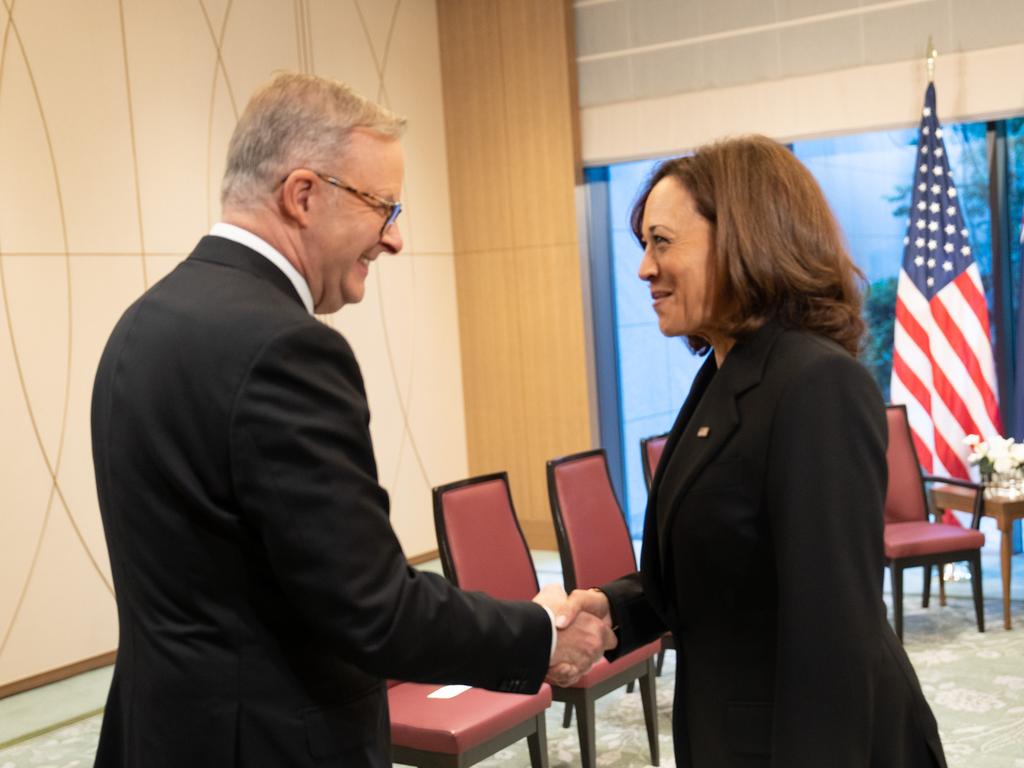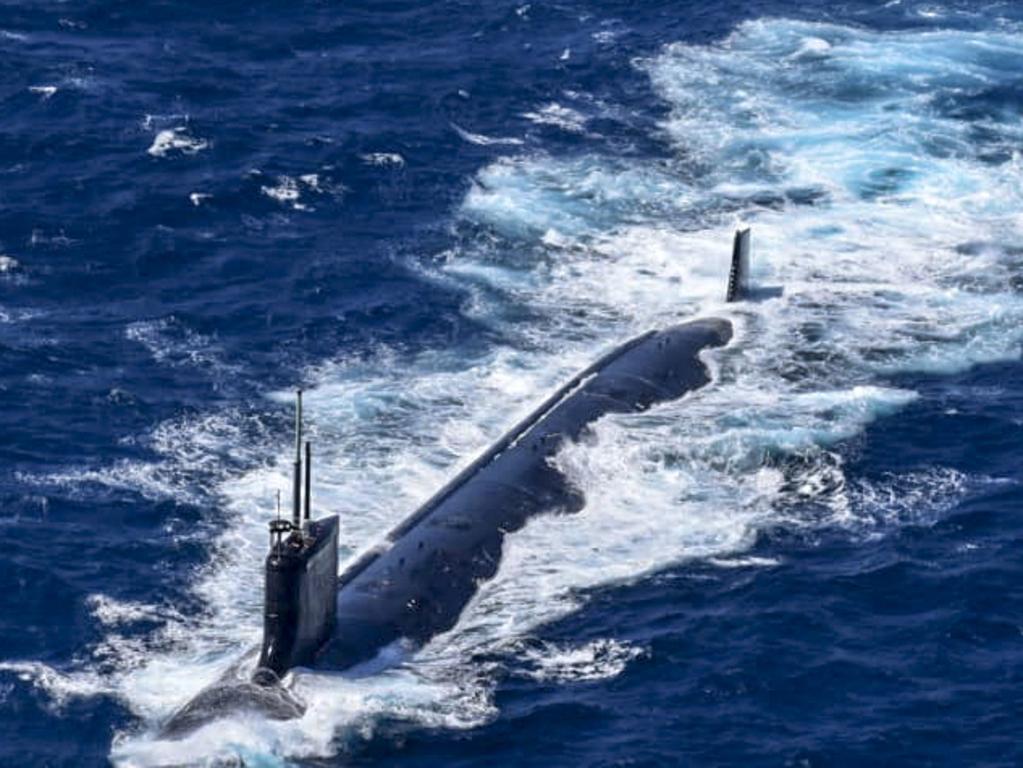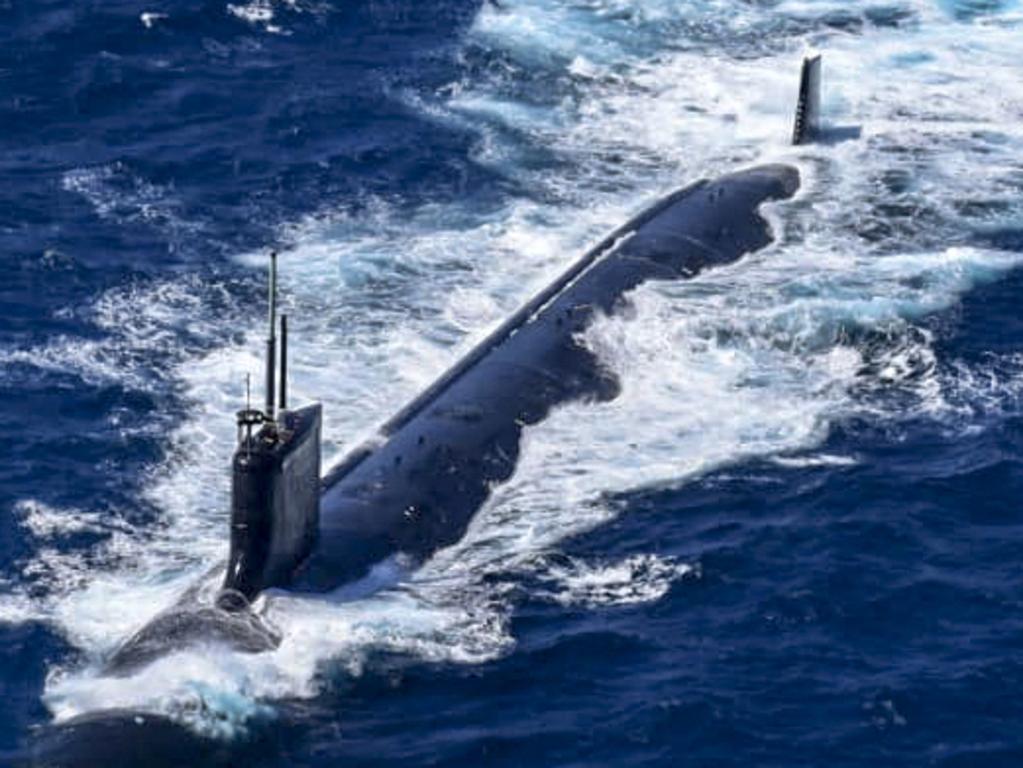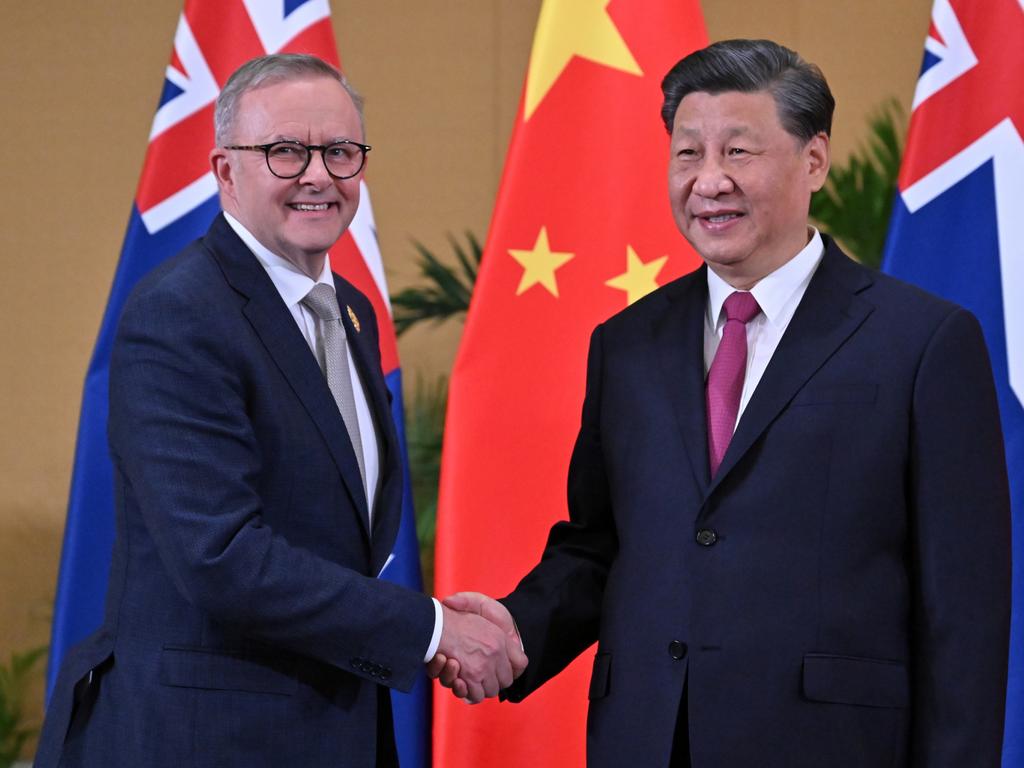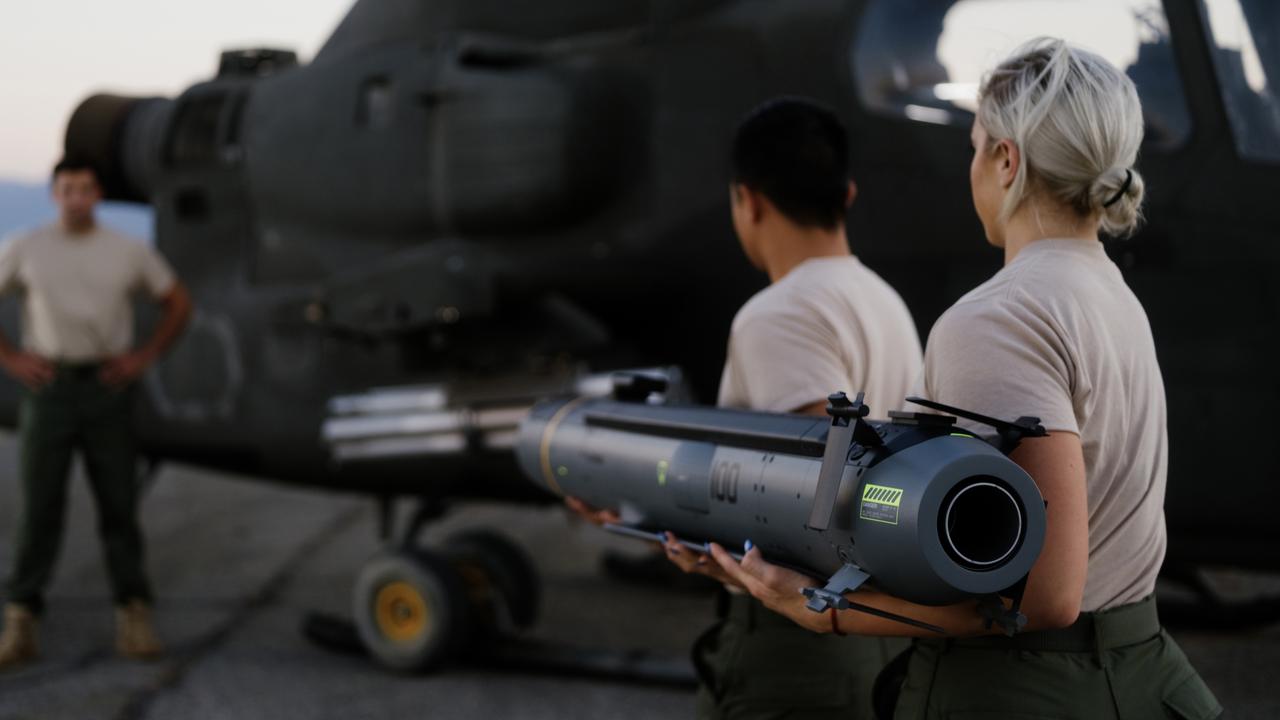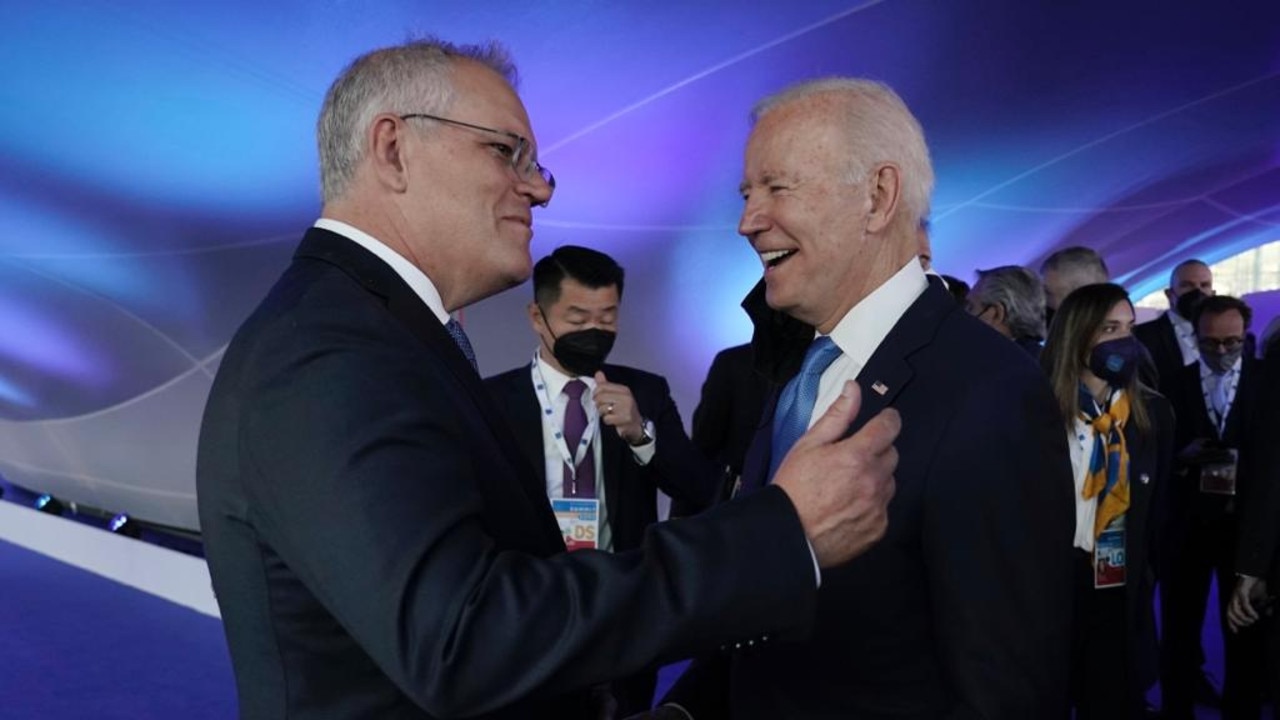Britain floats NATO-lite in Indo-Pacific
The influential chair of Britain’s defence select committee has called for a ‘NATO-lite’ structure to oversee security in the IndoPacific.
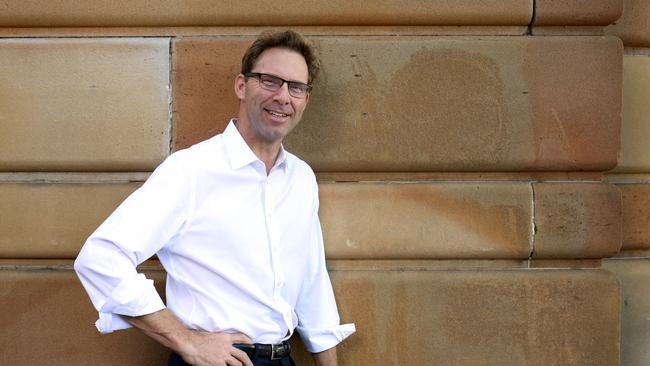
The influential chair of Britain’s defence select committee has called for a “NATO-lite” structure to oversee security in the Indo-Pacific – with Japan and India joining the AUKUS pact of Australia, the UK and the US.
The call for an expanded security coalition in the region comes as Britain will use next week’s annual ministerial meetings with Foreign Minister Penny Wong and Defence Minister Richard Marles to stress Britain’s “reliable and trustworthy” reputation to gain more involvement in the lucrative Australian submarine contract.
British diplomats and defence experts have been “quietly but insistently pressing their credentials” for a share of the $70bn contracts, and the ministerial talks to be held over two days just outside London come at a particularly sensitive time.
Defence select committee chair Tobias Ellwood, a former serving soldier in the Royal Green Jackets and now a lieutenant colonel in the 77th brigade army reserve, told The Weekend Australian he would like to see AUKUS merge with the Quad, a security arrangement between Australia, the US, India and Japan.
South Korea, Vietnam and New Zealand have also been on the fringes of the Quad.
Britain has been making security overtures to Japan in recent months. Earlier this week, Labour foreign affairs spokesman David Lammy suggested deepening alliances beyond Europe, “be that with Australia through AUKUS or defence co-operation with Japan”.
But Mr Ellwood, a Tory MP, has gone further, saying: “I would eventually like to see AUKUS and the Quad merge. This would lead to a NATO-lite structure in the Indo-China Pacific. It’s a long way down the road, but I believe that’s where we should be heading.”
Foremost in the coming meetings is the design of the Australian submarines with a plan detailing the “hybrid” nature of it, overseen by the Nuclear Powered Submarine Taskforce, headed by Vice Admiral Jonathan Mead, expected to be released soon.
A Strategic Defence Review, which will include the submarine concept, has been undertaken by Labor’s former defence minister Stephen Smith, who this week starts his new job as Australia’s high commissioner to the UK, and former chief of the defence force Sir Angus Houston. Both are part of the Australian delegation.
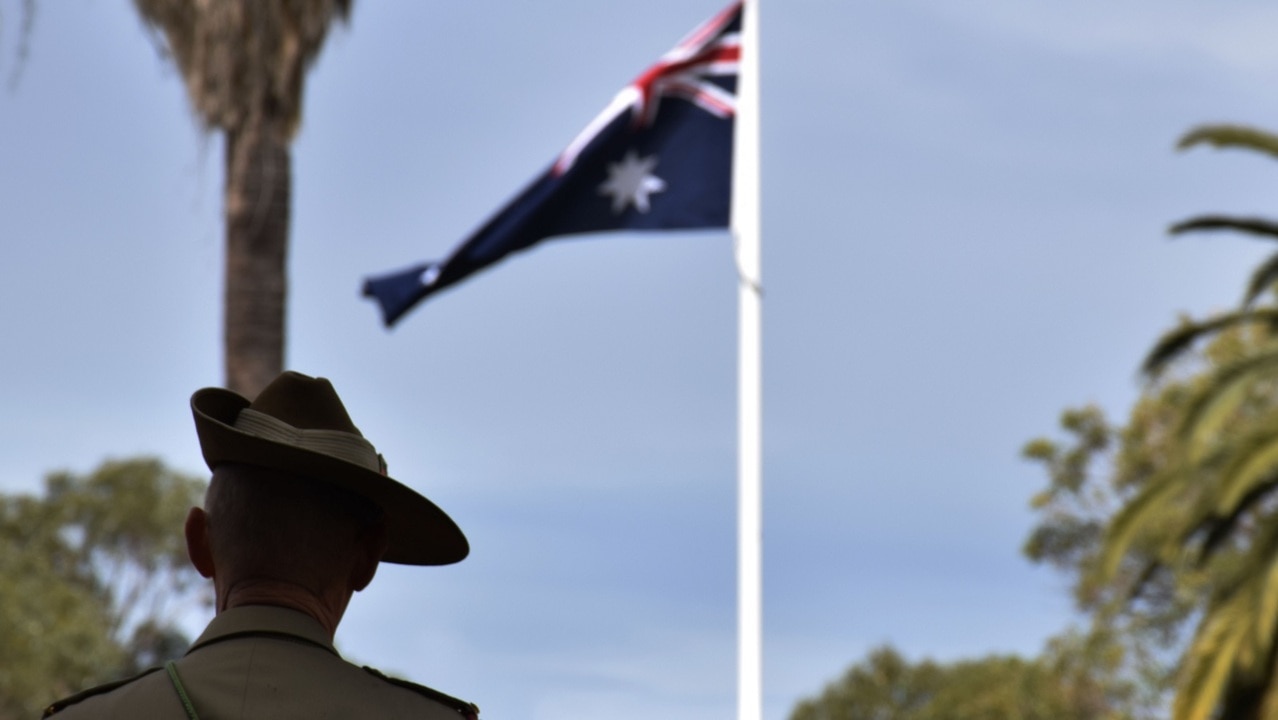
Mr Ellwood said: “AUKUS is a critical commitment for the three countries given what’s happening in your part of the world. Ultimately, it’s for Australia to make the big decisions, but from a British perspective it is hoped we can follow on from the success of the Type 26 (frigate program) in working together in jointly procuring your next-generation submarines.
“I visited the shipyards in Glasgow and it’s clear everyone is very excited about securing work with Australia.’’
Senator Wong and Mr Marles will first head to Paris for discussions with French counterparts in a further thawing of the tense relationship that arose when Australia cancelled the 12 French submarines in favour of the nuclear-powered AUKUS boats.
Senator Wong and Mr Marles will then meet with British Foreign Secretary James Cleverly and British Defence Secretary Ben Wallace, with issues likely to include China and Russia, security arrangements in the Indo-Pacific and Australia’s commencement of training of Ukrainian citizens on British soil.
Insiders say Australia wants its new nuclear-powered submarines to be a smaller than the US Virginia-class, more along the lines of the British Astute-class, but Australia’s familiarity with US weapons systems and a preference for the US nuclear-propulsion systems is favouring the American model.
However, top-level British officials say they are “holding their nerve” and quietly pushing for their own submarine, the next-generation Astute-class submarine, which will be developed with a vertical launch system, enabling it to carry hypersonic missiles, as well as the more traditional torpedo room. This matches the US Navy’s Virginia-class submarines.
Others suggest some decision makers have been spooked by public statements from influential US congressmen saying they don’t have the capacity to build Australia’s submarines.
“If this doesn’t help our push – we have been quietly trying to convince the Australians – then I don’t know what will,’’ said a separate British politician who spoke anonymously because he didn’t want to influence the discussions.
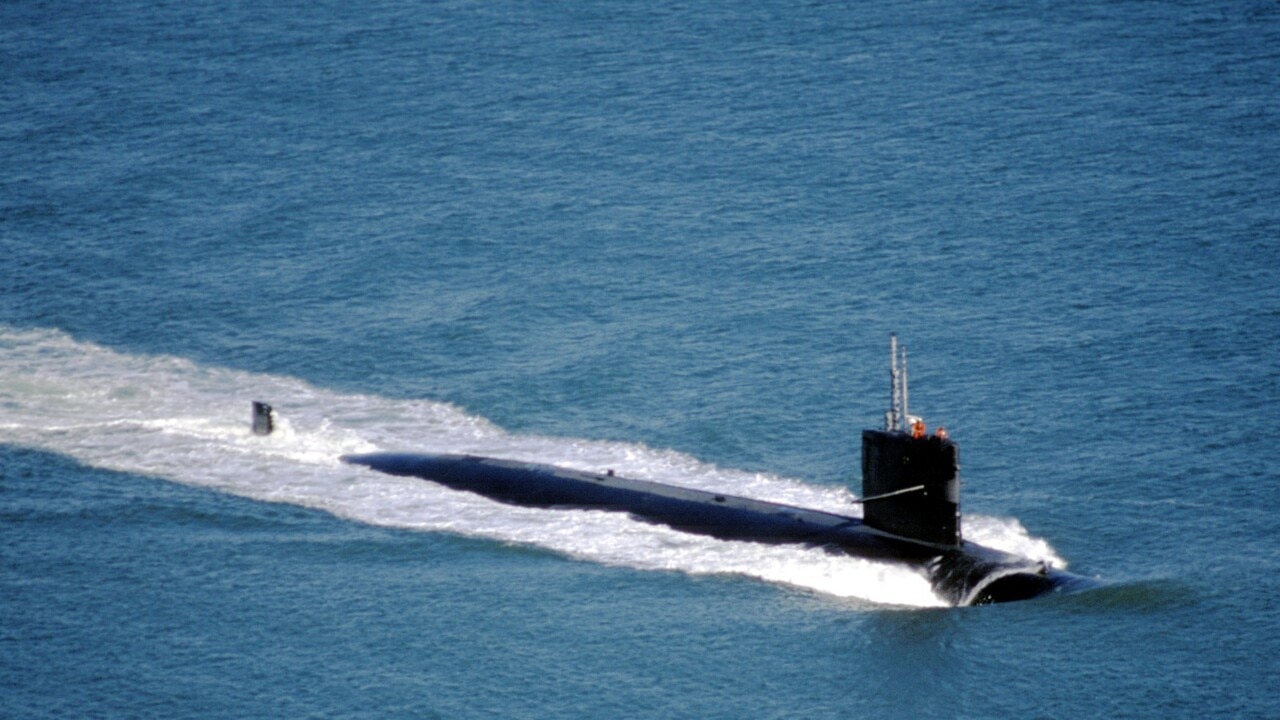
Mr Ellwood said: “I’m aware of the concerns the US Senate has raised; they are very focused on the state of their sub-surface fleet. I think it would be wrong to comment further. Ultimately, it’s for Australia to decide.”
A British defence insider said neither Britain nor the US has the capacity to build the Australian submarines immediately, but “once the decision is made, that capacity will be found’’.
Britain is currently constructing the final two of seven Astute-class submarines, HMS Agamemnon and HMS Agincourt, and has designs under way for the “SSNR”, (submersible ship nuclear replacement).
The AUKMIN meetings this week could also finetune a plan for Australia to develop an expert submarine workforce to build the next generation of submarines by maintaining some of the US and Royal Navy nuclear submarine fleets south of Fremantle.
Experts say Australia could rapidly develop manufacturing and operational expertise of the more technically advanced nuclear-propelled submarines in the short and medium term by assisting its key allies.
One proposal is for Australia to immediately expand the current submarine base in Fleet Base West, HMAS Stirling, south of Perth, and further develop the nearby Henderson Shipyard to become part of US plans for a forward operating base in the Pacific.
More Coverage
Read related topics:AUKUS


